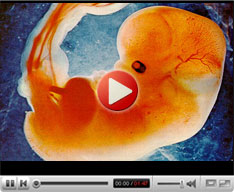
Know Infertitlity
Infertility treatments
Diagnosing InfertilityMale:
Obstetrics and Gynaecology
Infertility Treatment Services
Andrology |
Pap SmearThe Papanicolaou test (also called Pap smear test) is a screening testconducted to detect and identify changes in the cells of the cervix which might indicate cervical cancer or other conditions that may develop into cancer. This test was invented by and named after the prominent Greek doctor GeorgiosPapanikolaou.Cervical cancer is one of the few cancers that can be largely prevented through regular screening (Pap tests). Doctors normally advise women to undertake Pap tests every two years. It is important to keep in mind that Pap smears do not indicate the presence of gynecological problems or sexually transmitted diseases. They only indicate the presence of abnormal cells for which further testing and analysis would be required. Pap Smear and PregnancyA Pap smear is a routine part of your pre-natal check up and poses no risk to the foetus. In case youintend to get a Pap test done, consult your doctor to understand if you can undertake it while pregnant or wait until after the baby is born. If you have an abnormal Pap during pregnancy, your doctor will suggest treatments which can be done during pregnancy, or delay the treatment until after the baby is born. If an internal biopsy into the endocervical canal is recommended, there may be a slight risk of a pregnancy complication keeping your best interests and your health in mind.  However, if you choose to have a Pap test after the birth of the baby, it is best to wait for about 12 weeks as there is high possibility of obtaining unsatisfactory results due to inflammatory cells collected on the Pap test that are taken soon after delivery. Early stages of pregnancy are the best time to get it done. Pap tests can usually be performed during pregnancy up to at least 28 weeks gestation. Types of ScreeningThere are 2 types of screening:
Additionally, an HPV test may be performed either as indicated for abnormal Pap results, or in some cases dual testing is done, where both a Pap smear and HPV test are done. Ideal candidates for Pap SmearDoctors normally recommend Pap smear testing from the age of 21 and then every two or three years. These tests are then recommended every three years or every five years for women above 30 years of age and the Pap smear is usually combined with an HPV test. Your doctor may recommend Pap smears most frequently in case of certain risk factors such as:
Pros and cons of Pap smears
|
Our TeamNews & EventsClinic LocationVideo Gallery |















